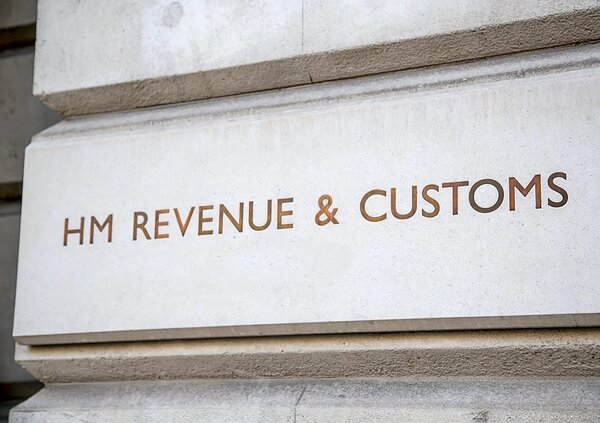All you need to know
Filing your Self Assessment tax return is stressful enough without discovering your PAYE tax code is wrong. An incorrect code can mean you’re paying too much tax or worse, too little.
Many taxpayers don’t realise that HMRC won’t automatically correct historical tax code errors. The responsibility falls on you to spot and fix them.
Pie‘s real-time tax monitoring alerts you to potential code errors before your income tax liability is affected by an incorrect tax code on your return. Or if you’re just here to get to grips with it all, let’s break it down!
Understanding PAYE tax codes
Your tax code isn’t just a random set of numbers and letters. It tells HMRC how much tax-free income you’re entitled to and if you need any adjustments. To create your tax code, HMRC usually removes the last digit from your personal allowance and adds a letter, forming the code that determines your tax-free pay.
The most common tax code is 1257L (for 2023/24), which represents the standard Personal Allowance of £12,570. Different letters mean different things ‘L’ means you get the basic personal allowance. For example, if your personal allowance is £12,570, you remove the last digit to get 1257 and add 'L', resulting in the code 1257L.
Employers figure out the correct tax code to use based on information from HMRC guidelines. Your tax code determines how much income tax is deducted from your pay each month.
Tax codes can go wrong for many reasons. Perhaps you’ve changed jobs, started a second job, or received new benefits from your employer.
When your employer gets your tax code wrong, it directly pays a role in determining your monthly earnings and deductions, which can throw off your Self Assessment calculations.

What happens if your PAYE tax code is wrong?
If you submit your Self Assessment with an incorrect tax code, you might end up paying the wrong amount of taxes through the PAYE system. You could pay too much tax, or worse, pay too little and face unexpected bills.
When you’ve overpaid, HM Revenue will eventually issue a refund but why let HMRC hold onto your money interest-free? If you’ve underpaid, HM Revenue may require you to pay the difference and you could face penalties and interest charges.
The longer a tax code error goes uncorrected, the bigger the problem gets. What starts as a small monthly discrepancy can add up to thousands of pounds.
HMRC has time limits for reclaiming overpaid tax generally four years. Don’t wait too long to fix errors from previous years.
How to spot a tax code error
Check your payslip or P60 and look for your tax code. Does it match what you expect based on your circumstances?
If your tax code starts with ‘K’, you’re paying tax on income that exceeds your Personal Allowance. This might be correct, but it’s worth double-checking. Notice your take-home pay suddenly changed? This could signal a tax code adjustment. Compare several months of payslips to spot patterns. Look out for HMRC notices about tax code changes (P2 forms). If you’ve received one but don’t understand why, you should investigate the reason for the change.
I once received a payslip with a BR tax code instead of my usual 1257L. This meant I was being taxed at 20% on everything! A quick call to HMRC revealed they thought I had a second job.

Complications and Consequences of a Wrong Tax Code
A wrong tax code can cause more trouble than you might expect. If your PAYE tax code doesn’t accurately reflect your employment details, personal allowance, or other income, you could end up paying the wrong amount of income tax throughout the year.
This can lead to a surprise tax bill, an unexpected tax refund, or even trigger an HMRC investigation if the mistake goes unnoticed for too long.
One of the most common issues is underpaid tax. If your tax code is incorrect and you’re not paying enough, HMRC will eventually catch up often when you file your self assessment tax return.
This can result in a demand for the underpaid tax, sometimes with added interest or penalties. In some cases, HMRC may use a K code or another common tax code to collect the shortfall directly from your future pay, adjusting your tax code to recover the debt over time.
On the flip side, an incorrect tax code can mean you’re overpaying tax. While you’ll usually be entitled to a tax refund, it’s frustrating to have your money tied up with HMRC when it could be in your pocket. Overpayments are typically identified when you review your personal tax account or complete your assessment tax return, but it’s always better to catch these errors early.
A wrong tax code can also complicate your self assessment. If the code used by your employer or pension provider doesn’t match your actual circumstances, the figures on your assessment tax return may not add up, leading to confusion or delays in processing. This is especially true if you have multiple jobs, receive company benefits, or have other income streams that affect your tax position.
To avoid these complications, it’s essential to regularly check your tax code online using HMRC’s online service or your personal tax account. Make sure your employment details, benefits, and any other income are up to date. If you spot an incorrect tax code, contact HMRC promptly either through your online account or by calling their support line. Keep an eye out for letters from HMRC, such as P2 notices or notifications about K codes, which may indicate changes to how much tax you pay.
Steps to fix a wrong tax code
Contact HM Revenue and Customs (HMRC) as soon as you spot an error.
Gather evidence before you call recent payslips, P60s, and details of any benefits or expenses. Have your National Insurance number ready too.
Be specific about what you think is wrong and why. “I think my tax code should include my pension contributions” is more helpful than “I think my tax code is wrong.” This helps HM Revenue and Customs process your request accurately.
Ask HMRC to confirm any changes in writing and keep records of all communications. If you are waiting for an HMRC letter to arrive, note dates, times, who you spoke to, and what was said.

After reporting a tax code error
HMRC will review your case and, if they agree there's an error, issue a new tax code. They'll send this to your employer or pension provider.
For overpayments, you can either receive a refund directly or have your tax code adjusted. This reduces future payments to balance things out.
For underpayments, HMRC usually collects small amounts by adjusting your tax code for the next year. Larger sums might need to be paid as a lump sum.
The correction process typically takes 4-8 weeks, but can be longer during busy periods. Be patient around the Self Assessment deadline.
Preventing future tax code problems
Check your tax code every time you get a new job, receive a P60, or notice a change in your take-home pay. Regular checks prevent nasty surprises. Tax codes can become complex if you have multiple jobs, pensions, or benefits, so extra attention is needed to avoid mistakes.
Sign up for a Personal Tax Account on the HMRC website to monitor your tax affairs online. It’s free and gives you direct access to your tax information.
Tell HMRC promptly about any changes to your circumstances. New jobs, additional income sources, or changes to benefits should all be reported.
Keep all tax-related documents for at least six years. This is how long HMRC can go back for investigations.

Final Thoughts
Tax code errors are common and fixing them is your responsibility, not HMRC's. Regular checks can save you money and prevent unwelcome surprises.
Acting quickly when you spot a mistake means you'll get your money back sooner if you've overpaid. If you've underpaid, you'll have more time to plan.
The UK tax system relies on you getting this right, but you don't have to navigate it alone. Seek help if you're unsure about your tax code.
Pie: Simplifying Tax Code Corrections
Keeping track of your tax codes shouldn’t feel like solving a cryptic puzzle. Our app makes spotting and fixing code errors simple with clear, jargon-free explanations.
We alert you when your tax code changes or looks unusual. This helps you catch problems before they affect your tax bill or Self Assessment.
Pie connects directly with HMRC, meaning you can view all your employment details in one place. You can spot discrepancies instantly without sifting through paperwork.
When something needs fixing, we guide you through the correction process step by step. We provide helpful templates for communicating with HMRC effectively.
Curious about how we can make your tax life easier? Explore the Pie app to see how it works.
For additional information about privacy and data collection, please refer to the app's privacy policy.











